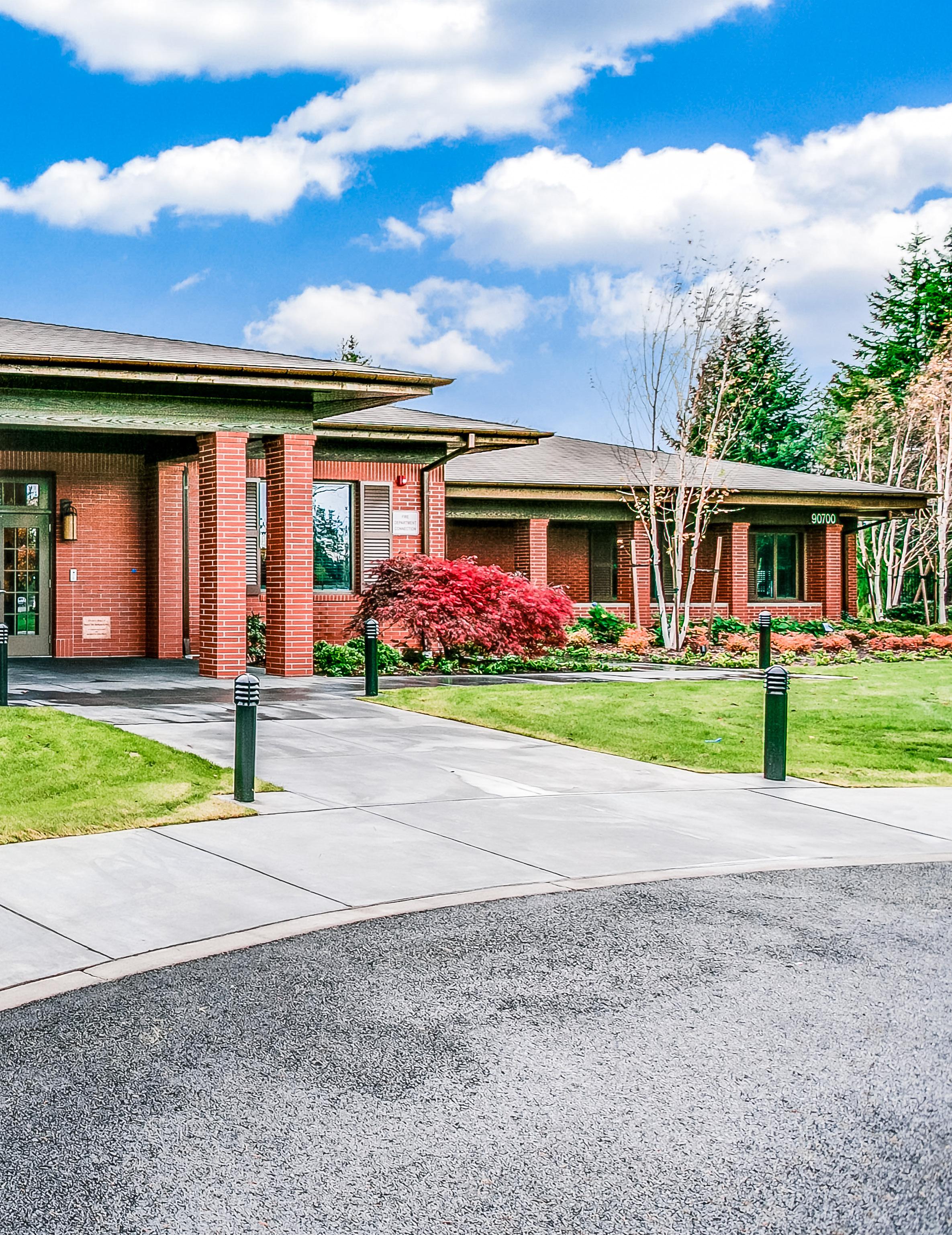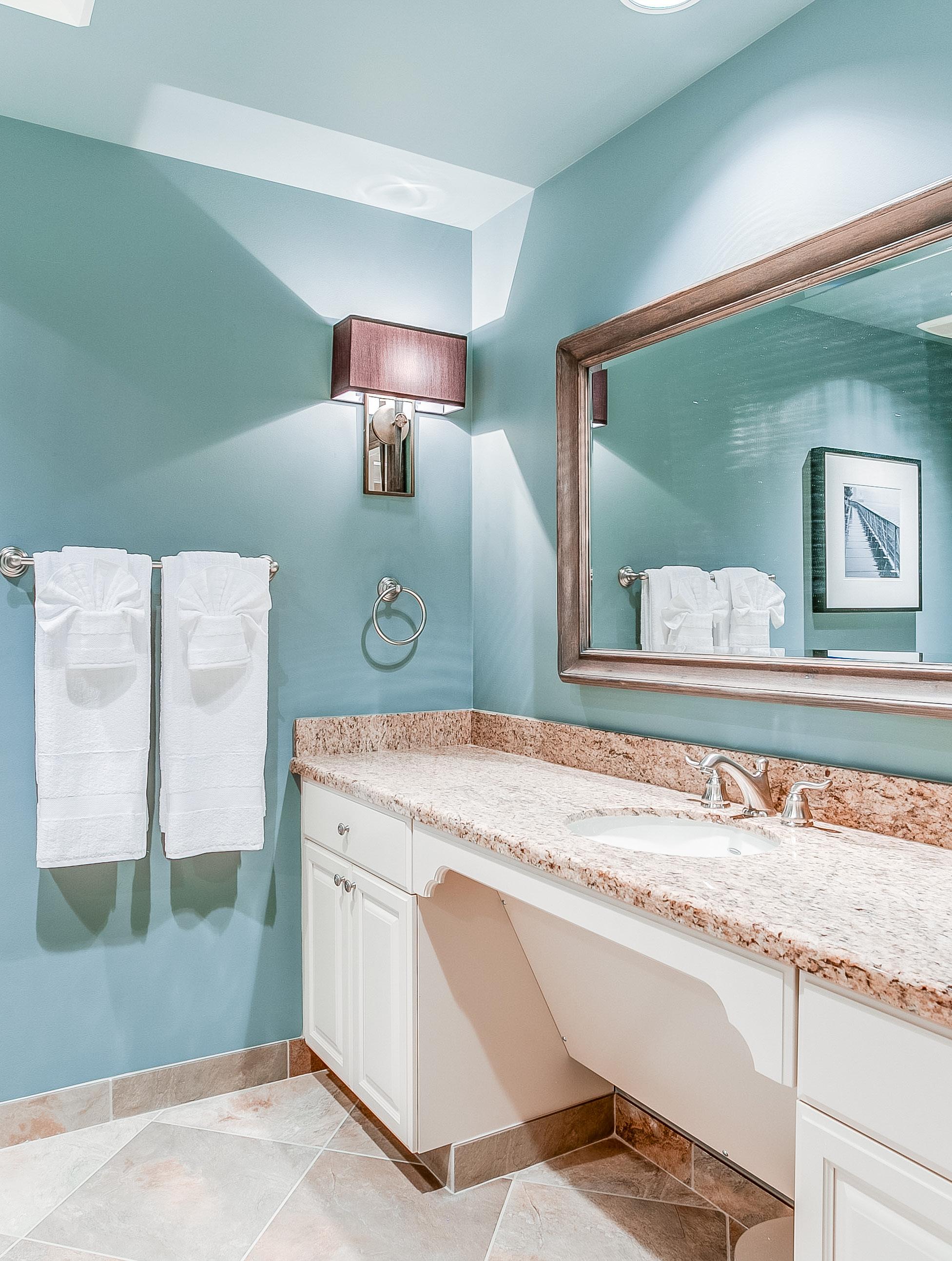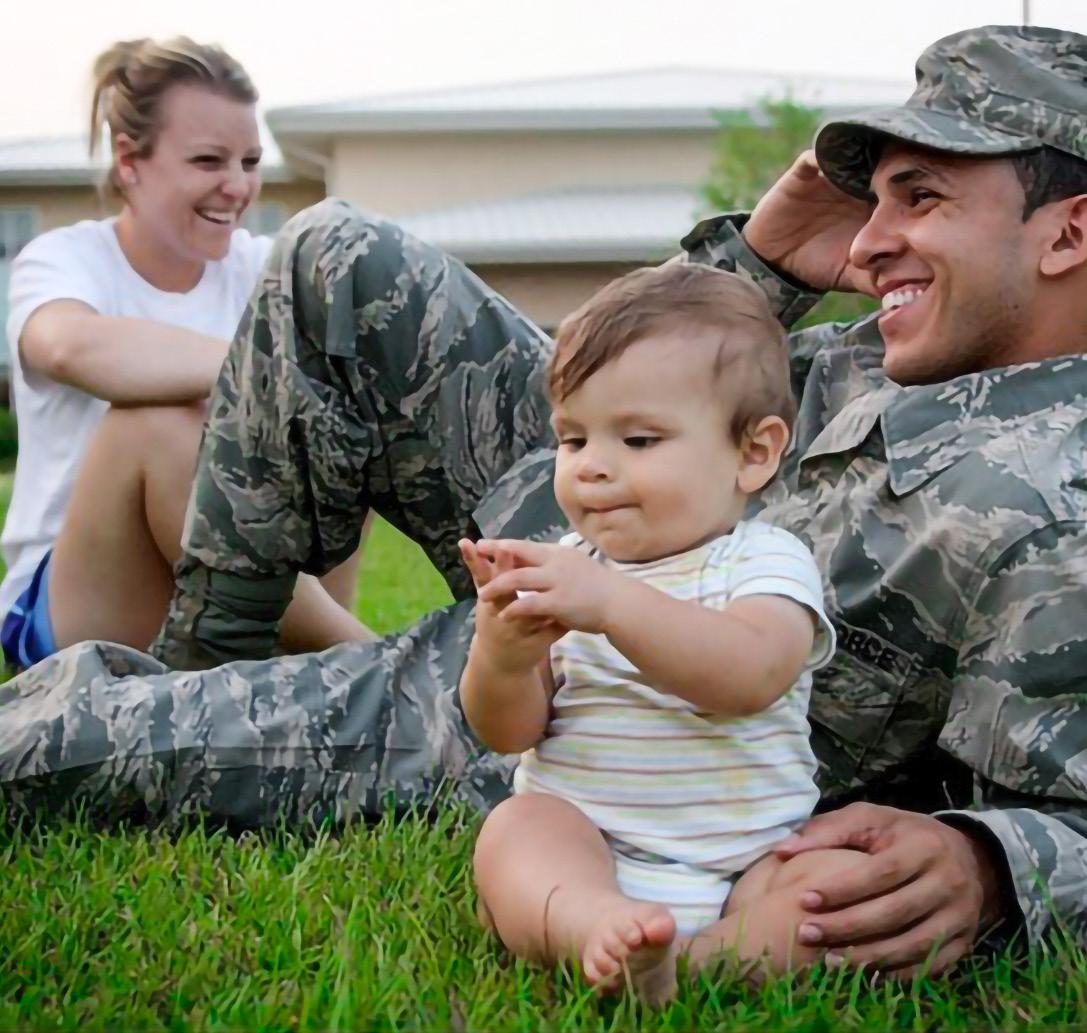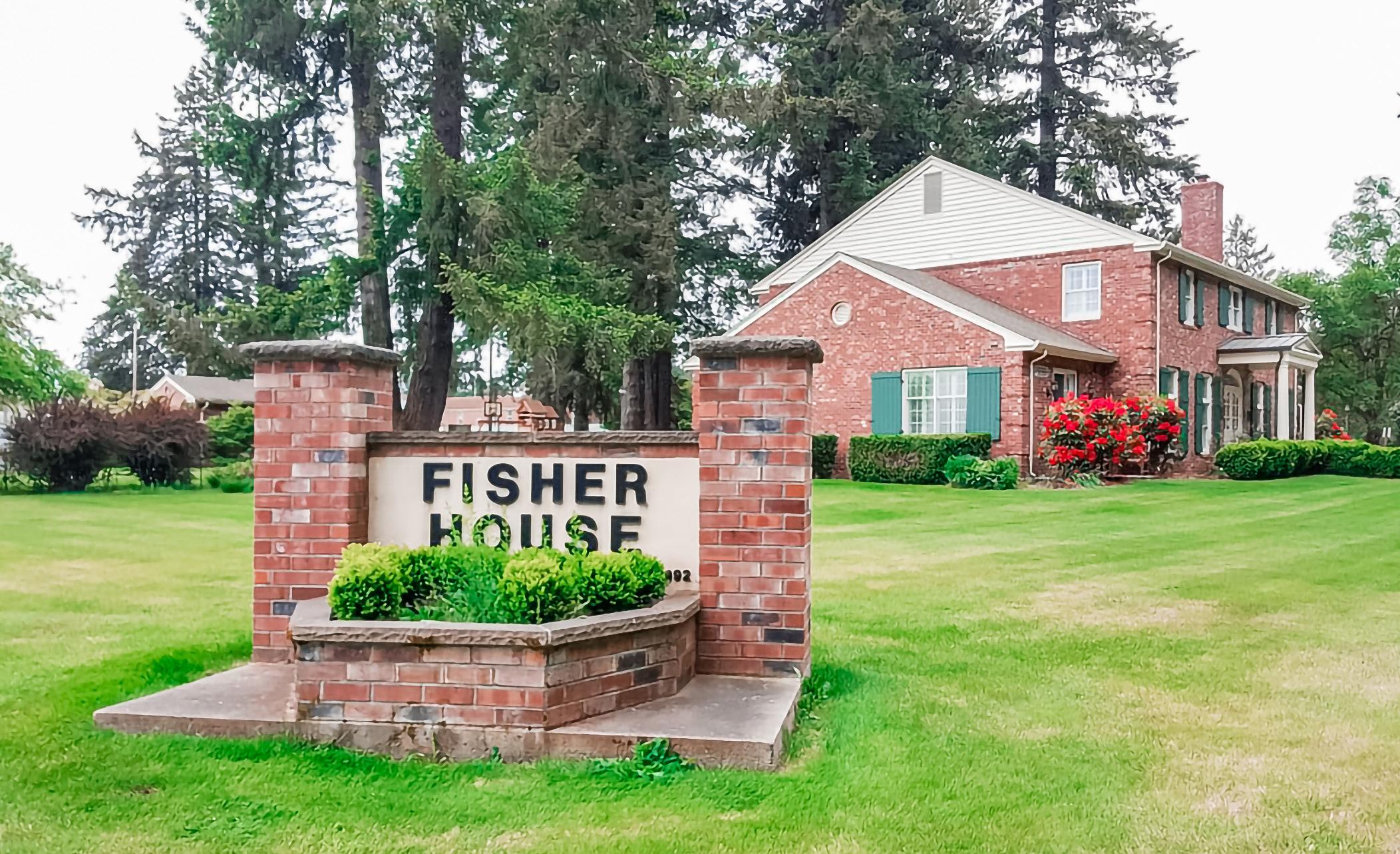
14 minute read
FEATURE STORY
‘Home Away from Home’ Fisher House
SOCIAL DISTANCING DID NOT REDUCE THE OBLIGATION TO THOSE WHO SACRIFICED
BY DAN AZNOFF PHOTOS COURTESY OF FISHER HOUSE JBLM
Like every element of normal life, the shelter-in-place order for residents of Washington state to prevent the spread of COVID-19 impacted the mission of a local nonprofit group that was organized to provide a safe haven for veterans and their families to stay while the soldier receives treatment at the medical facility at Joint Base Lewis-McChord. In compliance with guidance and restrictions ordered by the Department of Defense, the national offices of Fisher House in Rockville, Maryland, closed during the second week of April. That left the task of helping the families of injured and disabled veterans of the military up to the staff, which currently rotates and is in the home once a week to restock the home and check on the families at each location.

The Fisher House that serves military families stationed at JBLM established strict guidelines for accepting donations that included holding all items in quarantine for a minimum of 48 hours to prevent the spread of the potentially deadly virus. The guidelines are part of the national program to contain the virus through the federal government.
“We are not in a position to turn away donations, and we certainly do not want to give the impression that we are not grateful, but the health of the soldiers, their families and members of our staff have to take precedence,” said one volunteer.
Families who inquired about what assistance was available during one of the most challenging times in our nation’s history were directed to The Friends of Fisher House Puget Sound (FisherHouseVAPS.org), where volunteers responded to an unusually high number of emails and phone calls.
“We continue to keep our nation’s promise and obligation to those who have sacrificed for our nation’s freedom,” another volunteer added. “With a little help we will continue to raise funds and increase awareness of the quiet trauma that wounded veterans face every day.”
The VA Puget Sound Fisher House in Seattle, which opened its doors in 2008, is managed by Carrie Booker. She oversees the operation of the temporary home for veterans while they receive treatment in a quiet home-like setting adjacent to the medical center.
In Booker’s words, love is good medicine. Fisher House receives only a small percentage of its operating budget from the federal government, the majority of its funding comes from individual donations and organizations like the Friends of Fisher House Puget Sound.

Volunteers who work throughout the year to reduce the anxiety that comes with having a loved one in the hospital have continued to provide love and support for the families at Fisher House. Veterans like Andy Fairchok have answered the call in the best way he knows.
Fairchok was in the military for 27 years and now operates the Old Soldier Distillery. He donates all of the tips he collects from the tasting room on Puyallup Avenue in Tacoma to the JBLM Fisher House and adds them to donations from patrons and business owners in Tacoma.
“There is so much more we can do to help such a great cause. It’s just a matter of getting the word out, and people are eager to help,” said Fairchok.
The distillery proprietor used by-products from his operation to make hand sanitizer that was distributed throughout the community early in the month. Later in April, Fairchok and his staff delivered $1,500 worth of diapers and baby formula to families at Fisher House.
For Fairchok, reaching out to help veterans has been a family affair. His wife, Mary, served 14 years as a doctor at the Madigan Army Medical Center, located on Joint Base Lewis-McChord. Other members of his family were employed to frame the newest addition to the Fisher House.
He was reluctant to reflect how much Fisher House has impacted any individual soldier over the years he has been associated with the facility, but noted one veteran of the war in Afghanistan was so inspired by the kindness she received that she returned to the facility on Gardner Loop to volunteer hours of her own time to help others.
The local Fisher House in Tacoma has served almost 21,000 families. Staff at the facility have served 168 coalition families from 27 countries for an average stay of five days. More than 2,800 of the individuals who have received care at the local facility have been veterans of the fighting in either Iraq or Afghanistan.

The Tacoma complex typically provides home to seven families at Fisher House I and 10 families at Fisher House II. They average 10 families a month, and occupancy is around 70 percent.
It’s the Who, not the What – that matters most.
3R A D L E Y
INSURANCE
476653 Hwy. 95, Suite 3 in Ponderay 208 265-1888 Life insurance provides financially for the ones you love, if you can’t be there. It can cover outstanding debt, continue the mortgage payments and maintain your family’s standard of living. Some policies allow you to borrow against the value for expenses like college tuition or a down payment on a home during your lifetime. We have flexible policy options and affordable rates. Our advisors will help you choose the right type of coverage for your circumstances.

Thank You To Our Community
For voting us Bonners Ferry’s Finest Cup of Coffee for 2019!

WINNER
Hours:
Monday - Friday: 5:30am-4:00pm Saturday: 7:00am-2:00pm ׀ Sunday: Closed
Dried Beans - Lentils - Exotic Rice - Grain - Flour - Chiles & more.



ORGANIC NUTS & MORE BEANS & GRAINS RAW VALENCIA PEANUTS
GOOD QUALITY & FAST SHIPPING
Find us on: ............ Check out our blog: purcellmountainfarms.com/blog
208.267.0627 | PURCELLMOUNTAINFARMS.COM PURCELLMTN@POVN.COM


The task of remaining open and available to serve active duty, reserve/guard and veterans and their families requires dedication from a small army of volunteers. Since it opened, the Fisher House that serves JBLM has remained open with help from almost 30,000 volunteers who have donated almost 92,000 hours of time, according to the Friend’s website.
The Joint Base Lewis McChord Fisher House opened in 1992 in order to provide a space for military families receiving treatment at Madigan Army Medical Center, with a second Fisher House on JBLM opening its doors in 2015.
“We use the one we have now just about every day to capacity,” said commander of the Madigan Army Medical Center Col. Michael Place at the dedication ceremonies for the second residential structure.
The second Fisher House at JBLM was dedicated to the memory of Gen. John Shalikashvili, the former chairman of the Joint Chiefs of Staff who retired to nearby Steilacoom and served on the Fisher House Board of Trustees.
Generous Roots
The Fisher House program was established in 1990 by Zachary Fisher, a New York real estate investor and major philanthropic benefactor for the men and women in the United States Armed Forces, as well as numerous other not-for-profit organizations, and his wife, Elizabeth. There are currently 86 Fisher Houses located on 25 military installations and 37 VA medical centers, with many more houses under construction or in design.
Their stated goal was to provide “a loving safe place for families to call home while their loved ones received care in the hospital.”
Zachary Fisher was awarded the Presidential Medal of Freedom in 1998. One year later President Bill Clinton signed Public Law 106- 161 that honored the philanthropist status as an honorary veteran in the U.S. Armed Forces.
“Zachary Fisher was a kind man,” recalled Vivian Wilson, who managed the first Fisher House near the Navy base in Bethesda Naval Hospital in Maryland. “When we first opened, he called weekly to find out if there was anything that was needed and wanted to know what the families thought about the house.”
Wilson said Fisher always asked what else could be done to make the veterans more comfortable.
“People brought him joy,” said Wilson. “And he especially loved to help those who protected his freedom.”
Each Fisher House has between seven and 21 suites that can accommodate 16 to 42 family members. Every location features a common kitchen, laundry facilities, spacious dining rooms and a living room with library and toys for children. The newest houses are handicap accessible that include elevators.
Since first being established nearly 30 years ago, Fisher houses across the country have gained a reputation for developing a sense of community among families during dark times. The bonds are enhanced with common areas that provide space for families to care for each other while they share common experiences.
According to the organization’s website, Fisher houses across the country have saved military families an estimated $282 million in out-of-pocket lodging and transportation expenses. When they are at capacity, new applicants are given vouchers to local hotels to save
33 BonnersFerryLivingLocal.com
their money for other expenses that can occur during an emergency situation. Guest rooms at Fisher House have a maximum capacity of four persons. According to a statement released by Fisher House, referrals with more than four guests cannot be accommodated. A separate program titled “Hotel for Heroes” places eligible patients and their families in local hotels and is available when the number of patients and their families exceeds the capacity of the Fisher House. The residences have been designed to provide temporary housing and are not a treatment center. The residential units are available to active and retired military personnel, active duty reservists and members of the National Guard as well as anybody receiving inpatient treatment at the VA hospital. Exemptions can be made for soldiers and their families who live more than 40 miles from a medical treatment facility. House managers at each site have the authority to allow families of patients in Intensive Care or the Palliative Care units of the hospital on a case-by-case basis.
A Wishlist of Needs
The JBLM Fisher House posts a Wishlist of items most needed by families in the facility. The current list includes an extensive catalog of food items that ranges from basics like personal hygiene items, flour, cereal and bread to single-sized snacks and coffee. It also includes items that cannot be accepted during this time, such as used toys and games, stuffed animals and clothing. The full Wishlist is available at FisherHouseJBLM.org. Despite assurances from Fairchok that their identity would be protected, no current residents would agree to be interviewed for this article. However, Staff Sgt. Ken Lambes did agree to be quoted in a military publication about the four times he and his family utilized the Fisher House.
Fisher Houses
Current Families served: More than 32,000 in 2019 Daily capacity: 1,100 families Total Families served: More than 450,000 since inception Total number of lodging days offered: 9 million +

Lambes is a member of the JBLM ‘s 42nd Military Police Brigade who took his teenage son to the military hospital.
“The Fisher House really makes the nightmare of special treatment easier for families,” he said. Lambes was apparently so overwhelmed by the treatment he and his family received at Fisher House that he returned during the same year to invite many of the families at Fisher House to his own home for Thanksgiving dinner.
The family of an Oregon National Guard soldier wounded in Iraq more than a dozen years ago described Fisher House as “a beautiful bridge that makes bringing together a family so much easier even in heavy hearted moments of life.”
The obligation to care for veterans and active duty and their families who have sacrificed to defend the freedom that Americans enjoy remains the top priority for the caregivers at Fisher House and the scores of volunteers committed to making veterans and their families’ stay as pleasant as possible.
As a precaution, mail addressed to patients currently receiving treatment is not being delivered. “Mail will be processed once restrictions are lifted and staff members can safely report to work,” said a statement released by the Fisher House.“Thank you for your support as we navigate this challenge.”
YOUR BABY’S FIRST TEST
T H E I M P O RTA N C E O F NEWBORN SCREENING
BY SARAH PRESCOTT

When awaiting a new bundle of joy, parents are eager to finally hear the doctor pronounce the arrival of a healthy baby. An Apgar Score is given to a newborn to quickly assess their physical condition and health. However, there is another test that each newborn will undergo that is critical to discovering what may be hidden from plain sight and be crucial to their future development. This test is known as the Newborn Screening Test and it is required in Idaho to be done on all newborns. It is responsible for identifying a range of genetic and inherited health conditions that can lead to a myriad of developmental delays and potentially even death. (1) Even though these conditions are rare, it is important to identify them as soon as possible so that any necessary treatment can begin immediately.
The Newborn Screening Test scans for 47 such conditions. In Idaho, one in every 1,000 babies is born with one of these rare genetic conditions that in some cases could be fatal. (2) The test is done in two parts, with the first blood sample taken from a small pinprick to the baby’s heel being done at one to two days old, and the second sample being taken at 10 to 14 days old. The sample is obtained in the hospital where the baby is born or the pediatrician’s office and sent out to a lab in Oregon for testing. A blood sample can also be obtained at the Boundary Community Hospital Outpatient Laboratory and sent to the Oregon lab if the parent has been given the proper testing materials to bring in with them to the lab.
The results of these tests are sent to the baby’s pediatrician, who will then notify the parent of any findings. It is scary for a parent to receive such a call and get the news that their child has a genetic condition or defect that may change the course of their life. It is best though to receive this call as soon as possible so that a proper diet can be

Refined Aesthetics look and feel your best



started for an amino acid deficiency disorder or medication taken to prevent slow growth due to congenital hypothyroidism. Without the results of the Newborn Screening, some of these conditions may lead to the loss of a child or not knowing that there is an issue until irreversible developmental delays are observed. The conditions identified by the Newborn Screening Test usually mean a great deal of education and understanding along with a treatment plan that will be lifelong. A pediatrician or specialist will help parents navigate decisions and treatment plans regarding any of these identified conditions.
As the mother of a child who tested positive for one such rare condition, I can speak to the stress and uncertainty that comes along with a positive diagnosis. I can also speak to the strong sense of gratitude I have for the Newborn Screening Program and the fact that had my child’s condition not been identified at two weeks of age they might not have the same quality of life that they do today.
If you are expecting a child or planning to become pregnant, it is important to know what to expect regarding the Newborn Screening Test and the important role it plays in the lives of Idaho families.
Sources used for this article can be found online at 1) BabysFirstTest.org/newborn-screening/ states/idaho; 2) HealthAndWelfare.idaho.gov/ Children/NewbornScreening.
Services Include:
Botox/Dysport • Dermal Fillers
Microneedling • Sculptra Aesthetic Skin Care • Platelet-Rich Plasma Therapy Kybella • Microblading • Chemical Peels Medical-Grade Corrective Facials
Elleebana Keratin Lash Lift & Tinting Brow Shaping & Tinting • Dermaplaning
301 Cedar Street, Suite 301 | Sandpoint, Idaho
208-304-7535
SandpointMedSpa.com info@sandpointmedspa.com








